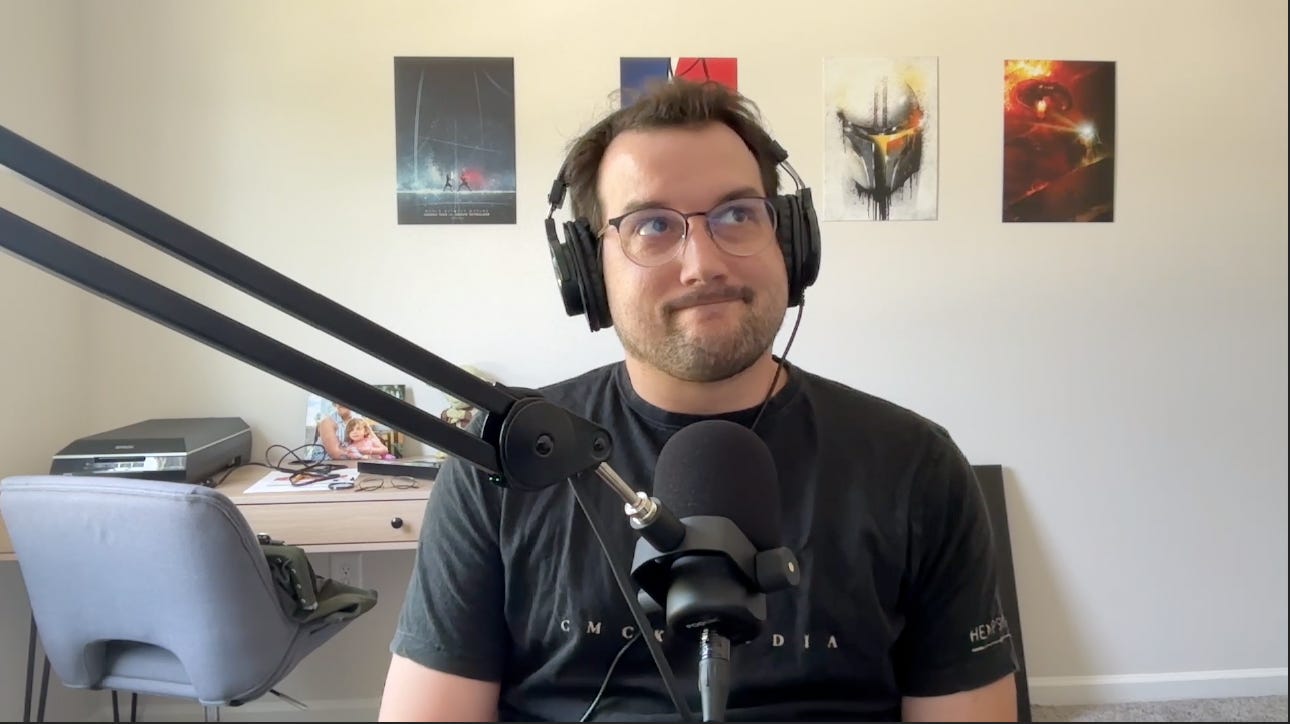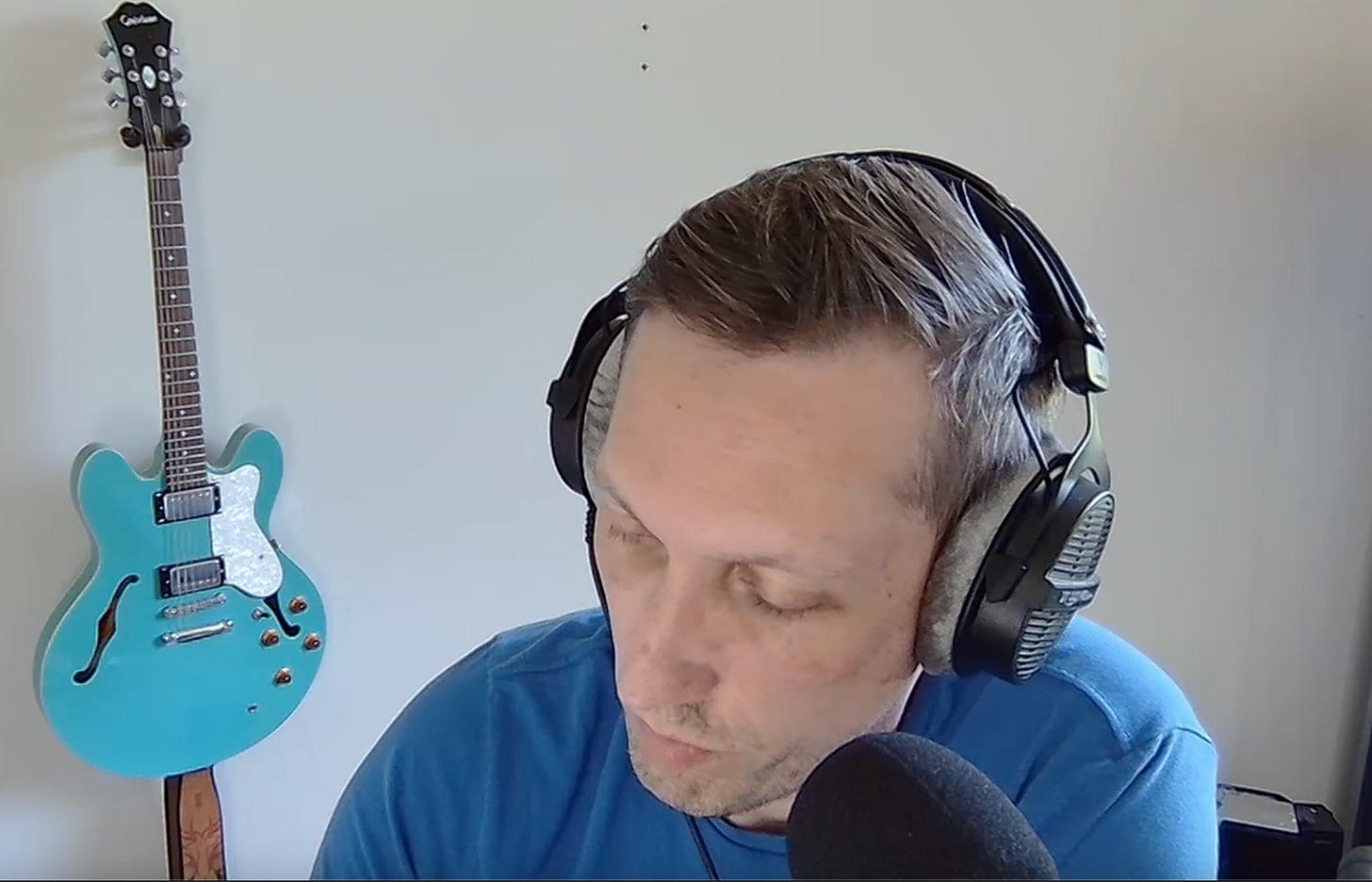Grow Your Creative Dream on Your Own Terms
Carey, an American Video Creator, shares what's it's really like to grow a creative business from scratch.

Lights, Camera, Carey
Inspired by science fiction, fantasy, and lore Carey prefers to create from behind the camera to tell a story, create an experience, and entertain others with the power of video.
His love for ‘movie’ magic stems all the way back to school projects in grade school. Now, he follows his passion to pursue partnerships that include puppets, retired soccer professionals, and quite possibly deals with Netflix and others.
With a young daughter and loving wife at, he feels blessed to not have the pressure of being the bread winner. His wife earns enough to pay most of the family’s living expenses which takes a lot of the pressure off as he often has put a lot of work into production and/or editing for clients before he may request payment.
First Creative Spark
Looking back on his creative projects that “were utter garbage,” he fondly recalls times of utilizing paper airplanes, string, and recycling leftovers to recreate famous scenes from Indiana Jones.
In High School, Carey was given a choice for a class assignment: Read ‘The Hobbit’ and choose between developing a board game or creating a movie. He shares that the movie project “was terrible but it was a lot of fun.”
Spend Money to Make Money
Near his home in North Carolina, he is glad that he made the decision to invest in a co-working space.
Carey looked for opportunity with this creative office he leases. Additionally, free headshots for members are traded for the ability to rent out his working space to other members for professional projects (such as documentaries, brand stories, or even podcasts).
When directing a film or video project, Carey often takes a loan out from the Bank in advance of the project starting so that he can make sure that funds are available to pay helping hands and actors (even though he knows that he’ll be paid soon after the project is completed).
He is often caught worrying over the amount of debt he carries from month to month; however, he knows that this is essential to building a business from a passion and a dream. Carey has a steady stream of clients, so now he plans to execute his growth strategies to work toward his goal of having excessive cash flow for his business.
Interview BTS
I sat down with Carey and recorded a conversation with him from his home office in North Carolina.
During our conversation, I provided prompts designed to get Carey to share his story flowing naturally without requiring my audio side of this storytelling experience.
Admittedly, there was a fair amount of editing and rearranging involved; however, I feel this project turned out pretty well.
Like Carey, I often doubt my abilities to support people’s creative objectives despite having many years of experience creating stories in a creative fashion. What do you think?
Exclusive Interview
Enjoy Carey sharing his story about his journey as a creative entrepreneur revealing what sparked his love for the video medium, struggles and tough times, why awards sometimes feel like nonsense, and what he has planned with puppets and Netflix in the future.
If you prefer to read the conversation, please download this transcript instead.
Oscars are Bullshit
Most award shows are “pay to play” and considers them just like a business. You still have to sign up, pay a fee, and campaign for the award. Yet, people who believe in your talent will advocate for you. When you receive the award you have something tangible to showcase from that recognition.
An award is also something that speaks to your success as a creative. If you put two video creators side by side of equal talent more often the creator who received awards will be chosen for the project.
Does that mean that Carey never dreams of winning an Oscar? Hell, no. To him, that’s one of the greatest awards that video creators may receive.
Advice to New Creators
Don’t stress about being perfect and having top-tier equipment.
Purchase an iPhone (or a phone with a decent camera) and start shooting. Start telling stories and accepting that the first attempts at storytelling are going not be as great as you had hoped for.
With practice, time, and working on your skills you’ll find yourself to create stories that you’re proud of and are well received.
Even if you are able to get your hands on an analogue video camera you can still produce great content - especially as a lot of older video recordings can still be converted to digital.
You don’t have to have fancy video editors as there are many out there for free such as Lightworks or DaVinci Resolve. Adobe Premiere may be staple software in the video creator community, but this doesn’t have to be your only option. Better yet, the Adobe Creative Suite is heavily discounted for students and non-profit agencies.
Carey wishes he would have done more with less. In hindsight all of the fancy equipment he bought early on wasn’t required to be an effective storyteller.
Give Carey a follow on Instagram and LinkedIn. Tell him Your Podcast Sidekick sent you!
Are you a creative entrepreneur? What lesson would you like to share with other readers?
I welcome your questions about idea generation, storytelling, podcasting, or something creative. Feel free to say hi!





